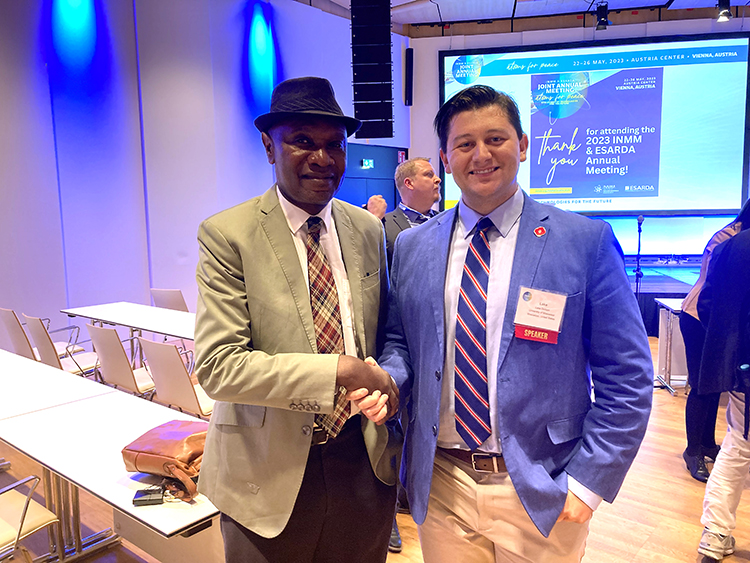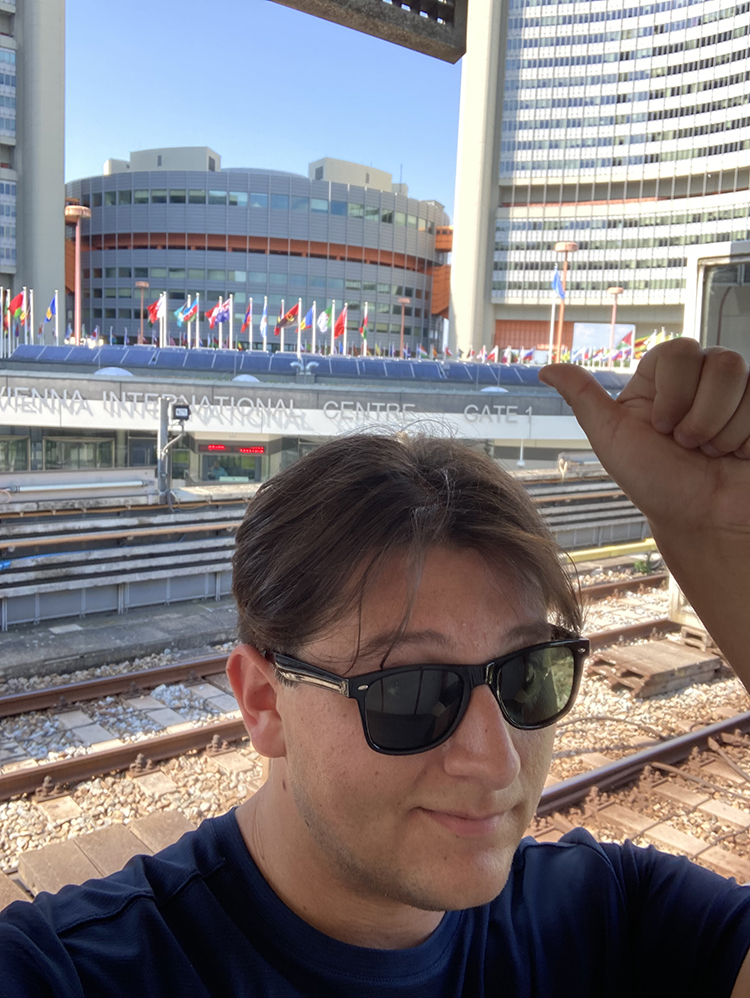
University of Mississippi senior Lake Dodson (right) meets Enobot Agboraw, executive secretary of the African Commission on Nuclear Weapons, following Dodson's presentation at the Atoms for Peace conference in Vienna. Dodson spoke at the meeting on the potential for thorium to provide energy for developing countries. Submitted photo
University of Mississippi senior working to decrease international tension over nuclear weaponry
A University of Mississippi senior political science major is working to spread the word about a seldom-used radioactive element that he believes can help solve energy needs and lessen the threat of nuclear conflict.
Lake Dodson, of Madison, believes that thorium could provide plentiful, cleaner energy for countries around the world. He recently presented his case at the Atoms for Peace conference, a joint annual gathering of the Institute of Nuclear Materials Management and Europe‘s counterpart, the European Safeguards Research and Development Association, in Vienna.
Thorium is a radioactive element, similar to uranium or plutonium, but more stable than both of them. However, scientists estimate that thorium is four times more abundant on Earth than those elements.
“The Cold War really stifled the potential of nuclear energy because the United States, Russia or any other powerful player that was rich enough to have nuclear energy wanted uranium and plutonium because they could work for both nuclear energy and nuclear weapons,” Dodson said.
“Thorium, however, chemically cannot become a nuclear weapon. It was underutilized until the end of the Cold War for that reason.”
Several countries, including the U.S., are studying thorium’s potential for electrical power production, and India is building several thorium reactors.
“Basically, the premise of my presentation was all about how if we further the research of thorium energy, it will decrease the likelihood of nuclear weapons development,” Dodson said. “I show that there is a correlation between the rising amount of usage of nuclear energy and the falling amount of production of nuclear weapons.”
Dodson got help from several Ole Miss professors, including John Bruce, chair of the Department of Political Science, who helped arrange funding for the trip from the university’s Office of Research and Sponsored Programs, College of Liberal Arts, and chancellor’s office.
Sue Ann Skipworth, an instructional associate professor of political science and Dodson’s adviser, also supported his effort to attend the conference.
“He is one of the most engaging students I’ve had in the classroom,” Skipworth said. “He has a passion for studying international affairs, which he demonstrates through his coursework and extracurricular activities.”
For his senior year, Dodson plans to study abroad in Seoul, South Korea, and is aiming for a career in scientific policy making.
By Abigail Martin





